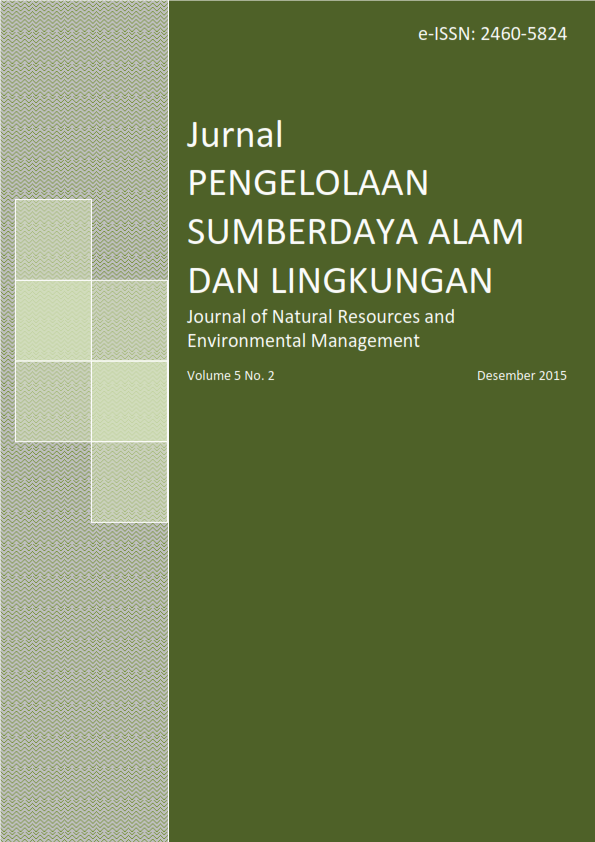KEBIJAKAN PENGELOLAAN LINGKUNGAN KAWASAN INDUSTRI SESUAI PROPER KLHK PERINGKAT HIJAU (STUDI KASUS DI KAWASAN INDUSTRI JABABEKA BEKASI)
Abstract
Environmental management in industrial estate is the strategic policy model which is needed to be developed referring to the Indonesian Government Decree number 24 year 2009, that state almost all of the new industrial developments should be located in industrial estate. The complexity in this environmental management was approached by “green rating” of PROPER’s criteria regulated by Ministry of Environment & Forestry (KLHK). PROPER is the assessment program of company performance rating in environmental management. Green rating is classified by PROPER in terms of beyond compliance performance. The result of the case study in Jababeka Industrial Estate (KIJA) Bekasi, based on its environmental situational analysis year 2014 by multidimensional scaling (MDS) method, showed that only the management dimension had a sustainability performance. The results of prospective analysis on leverage factors of MDS showed that the key factors of the environmental management model were (1) DRKPL (summary document of environmental management performance), (2) implementation of water conservation and reducing water pollution program, (3)funding for water conservation, (4) monitoring and evaluation of community development program, (5) implementation of 3R (reduce, reuse, recycle) programs of hazardous waste, (6) technology of 3R, and (7) benchmarking. Based on the key parameters and referred to the possibilities conditions, three scenarios have been developed to approach the implementative policy. The moderate scenario was recommended to be the right policy in term of consideration of technology, funding availability, time of implementation and organization skills.
Keywords: environmental management, industrial estate, jababeka, proper KLHKAuthors
Authors who publish with this journal agree to the following terms:
- Authors retain copyright and grant the journal right of first publication with the work simultaneously licensed under a Creative Commons Attribution License that allows others to share the work with an acknowledgement of the work's authorship and initial publication in this journal.
- Authors are able to enter into separate, additional contractual arrangements for the non-exclusive distribution of the journal's published version of the work (e.g., post it to an institutional repository or publish it in a book), with an acknowledgement of its initial publication in this journal.
- Authors are permitted and encouraged to post their work online (e.g., in institutional repositories or on their website) prior to and during the submission process, as it can lead to productive exchanges, as well as earlier and greater citation of published work (See The Effect of Open Access).






